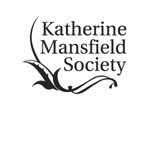15 July
15 July
15 July 1920
2 Portland Villas, Hampstead - London
[. . .] Alas! we are poor little humans, who hate the ought and feel that it numbs some rich, rare fineness in us, who feel that were it lifted we too might suffer a sea-change and of our bones coral be made; and we rejoice that there has been one man in our age who has had the wisdom and the vision to see these things in us. If we could only be as true to ourselves as the people in The Cherry Orchard are to themselves, come as near to others as Tchehov came near to them, ‘love our stones' with the same passionate sincerity of the moment as Liubov Andreevna loves hers, admit with the same honesty as they do that they feel freer now the incubus of the home they love has gone, speak to a cupboard with the same flow of sentiment as Leonid does to his - why, then we might not please The Times, but something might be done with us.
And as with our souls, so with that crystallization of them which is art. Until a play like The Cherry Orchard, so intimate, so real, so beautiful, is felt to be as near and dear to a cultivated British audience as it is to a Russian, there is not much to be done with the English drama. Until our critics feel by instinct that it is to make themselves a laughing-stock to the world to speak of The Cherry Orchard and The Skin Game in one breath - and we speak as respecters of Mr Galsworthy - whatever may be done with the British drama will wither before the stare of polite incomprehension. Until our English actors feel themselves at home in, as thrilled by and as proud to act in The Cherry Orchard as the artists of the Moscow Theatre did in 1904, whatever may be done with the British drama will be stifled at birth. [Unsigned review of The Cherry Orchard in the Athenaeum, 16 July 1920]

